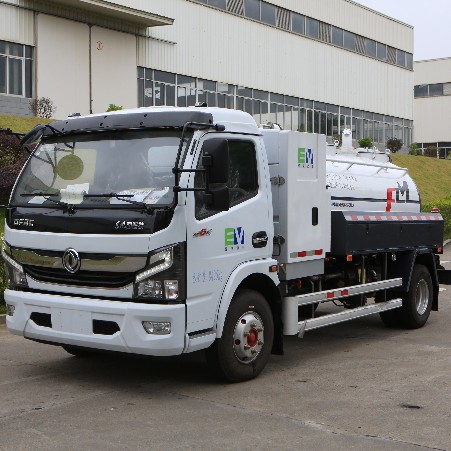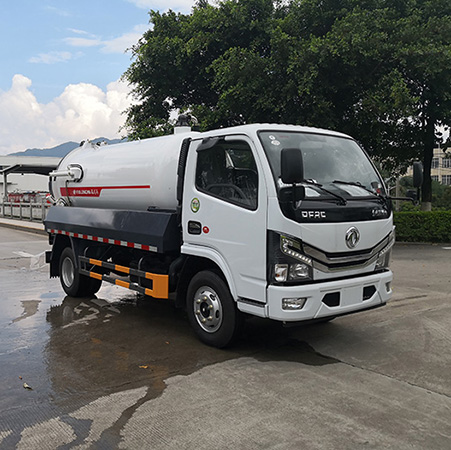Septic systems are essential for homes not connected to municipal sewer lines, providing an on-site solution for managing wastewater. These systems treat and dispose of household waste using a combination of nature and technology. However, maintaining a septic system requires regular attention, and this is where septic trucks come into play. These specialized vehicles are indispensable in waste management, ensuring that septic systems function effectively and safely by removing accumulated waste and transporting it to designated disposal sites.
What is Septic Systems
Septic systems are underground wastewater treatment structures commonly used in rural areas without centralized sewer systems. They consist of two main components: a septic tank and a drain field. Wastewater from a home flows into the septic tank, where solids settle to the bottom, forming sludge, and oils and grease float to the top as scum. The liquid wastewater, or effluent, then flows into the drain field, where it is further treated by the soil.

Components of a Septic System
- Septic Tank: The tank is a watertight container made of concrete, fiberglass, or polyethylene. It holds wastewater long enough for solids to settle out and scum to float to the surface. Bacteria in the septic tank break down organic matter, allowing liquid waste to pass into the drain field.
- Drain Field: Also known as a leach field, it is a shallow, covered excavation made in unsaturated soil. Pretreated wastewater is discharged through piping onto porous surfaces that allow wastewater to filter through the soil. The soil treats and disperses the wastewater as it percolates through the ground.
- Pipes: These carry wastewater from the home to the septic tank and from the tank to the drain field.
The Role of Septic Trucks
Septic trucks are specialized vehicles equipped to pump out the sludge and scum that accumulate in septic tanks over time. Regular pumping is essential to prevent system failure, environmental contamination, and costly repairs.
- Waste Removal: Septic trucks remove the solid waste and scum from septic tanks, preventing blockages and overflows that can lead to environmental hazards.
- Transportation: Once the waste is collected, septic trucks transport it to designated treatment facilities, where it is processed and disposed of safely.
- Regular Maintenance: By facilitating routine maintenance, septic trucks help extend the lifespan of septic systems and ensure they operate efficiently.
Technology and Equipment
Modern septic trucks are equipped with advanced technology and equipment designed to enhance their efficiency and safety in waste collection and disposal.
Vacuum Systems
The vacuum system is the heart of a septic truck, enabling it to suck up waste from septic tanks efficiently. These systems use powerful pumps to create negative pressure, drawing waste into the truck’s holding tank. The strength and reliability of vacuum systems are crucial for the effective removal of waste, ensuring that septic tanks are thoroughly cleaned and maintained.
Tank Capacity
Septic trucks come in various sizes, with tank capacities ranging from a few hundred to several thousand gallons. The size of the tank determines how much waste a truck can collect and transport in a single trip. Larger tank capacities are ideal for servicing multiple septic systems in one outing, reducing the need for frequent trips to disposal facilities and increasing operational efficiency.
Safety Features
Safety is paramount in septic truck operations. Modern trucks are equipped with features such as:
- Pressure Relief Valves: To prevent over-pressurization during waste collection.
- Anti-Spill Technology: To minimize the risk of leaks and spills during transport.
- Backup Cameras and Sensors: To enhance maneuverability and safety during operation.
These features not only protect the operators but also ensure that the waste collection and transport process is conducted in an environmentally responsible manner.

Conclusion
Septic trucks play an indispensable role in waste management, ensuring that septic systems operate efficiently and safely. Their advanced technology and equipment make them vital tools in maintaining the health of our communities and the environment. Regular maintenance facilitated by septic trucks helps prevent costly repairs and environmental damage, underscoring their importance in the waste management ecosystem.
FAQs
How often should septic tanks be pumped?
Septic tanks should typically be pumped every three to five years, depending on the size of the tank and the number of people in the household. Regular pumping helps prevent system failures and extends the life of the septic system.
What happens to the waste collected by septic trucks?
The waste collected by septic trucks is transported to wastewater treatment facilities, where it is processed and treated to remove harmful bacteria and pollutants. The treated waste is then safely disposed of or repurposed as fertilizer.
Are there any risks associated with septic truck operations?
While septic truck operations are generally safe, risks can include spills, leaks, and exposure to hazardous waste. However, modern trucks are equipped with safety features and are operated by trained professionals to minimize these risks.
How do septic trucks handle different types of waste?
Septic trucks are designed to handle various types of waste, including solid sludge and liquid effluent. Their vacuum systems can efficiently collect and transport these waste types to treatment facilities for processing.
What are the costs associated with septic truck services?
The cost of septic truck services can vary based on factors such as location, the size of the septic tank, and the frequency of pumping. On average, homeowners can expect to pay between $250 and $500 for a standard septic tank pumping service. Regular maintenance can help prevent more costly repairs and replacements in the long run.







